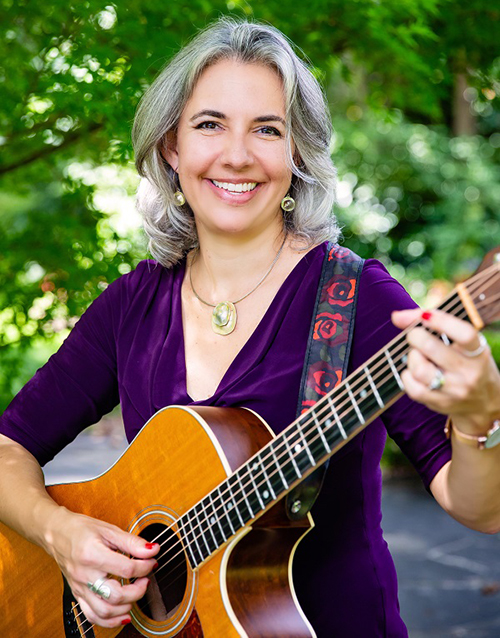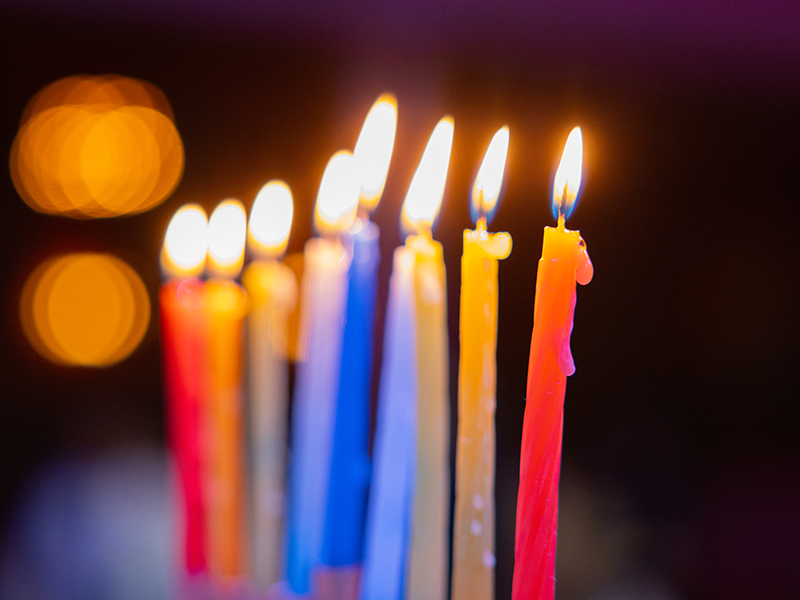Judaism has a deep and rich tradition of storytelling, of passing down stories from one generation to the next. To carry on that tradition, Stories We Tell, from ReformJudaism.org, will share a new story with you every Thursday. Whether you listen while driving to work, preparing Shabbat dinner, or taking your kids to school, each episode will give you a new story to reflect on and discuss with the people in your life. Stories We Tell is a project of the Union for Reform Judaism, a leading voice in the discussion of modern Jewish life.
After 40 years in the desert, the Israelites reached the Land of Canaan. When they got there, they saw wheat and trees and fruit—things they had never seen before after spending their lives in the desert. But one woman remembers her mother describing plants and how they grow, so how does she explain it to her daughter? Cantor Rosalie Will retells the story. For a written version of the story, see “Gods Miracles” by Rabbi Edward H. Garsek in Three Times Chai: 54 Rabbis Tell Their Favorite Stories edited by Laney Katz Becker.
Three ways to listen:
- Listen to the full podcast below
- Subscribe to the podcast on Apple Podcasts
- Subscribe to the RSS feed
Transcript
[URJ Intro] Welcome back to Stories We Tell, a podcast presented by ReformJudaism.org. For those of you that are regular listeners, you know that each week, we share a story to reflect on a bit through shabbat or through the rest of the week. As some other podcasts do, we are actually just about to take a little bit of a hiatus for just a few weeks to collect a few more stories.
In the meantime, we'll be sharing some of our favorite stories that have already run. For those of you that have heard them, we think you'll like them again. And for those for whom they are new, we think you'll love them for the very first time. This week, Cantor Rosalie Will, the director of worship and music for the Union for Reform Judaism, shares the story "God's Miracles."
[Cantor Rosalie Will] After many years of traveling through the desert, the Jews reached the land of Canaan. And as they stood and gazed at the beautiful orchards, wonderful trees, rich fields of wheat, they realized they had no idea what they were looking at. What a strange sight it was. For, you see, everyone who was standing gazing at this bounty of the land were born in the desert. They had never seen anything like it. All they knew was some sand, maybe a few bushes, perhaps a little water. They had absolutely no idea what they were looking at.
So as they stand gazing at this site, a little girl tugs on her mom's pant leg and says, mommy, what is all this? What are these things we're looking at in this beautiful land? And the mother scratches her head and says, well, I do remember my mother telling me about things like this that she saw in Egypt. I think those big brown pillars are called trees. And the things that are hanging from them, those round things, are called fruits. They're apples and oranges. And the brown flowing stalks in the breeze, that's wheat.
And the little girl says to her mother, well, what do they do? Her mother says, well, those trees, they give shade. And those fruits, those red and orange fruits, the apple and oranges, when you take a bite out of them, they are sweet and delicious. And those brown stalks, the wheat, that are blowing in the wind, they get collected, and they get pounded up into a little dust. And when mixed with some things, they're heated and baked, and they become the most delicious bread. That is what my mother told me.
And the little girl says, wow, mom. It is pretty amazing that God put those things in the ground for everyone. They're so beautiful. That was really great of God to put them there. And the mother says, you know what? I don't think that's how it worked. Give me your hand.
And the mother takes the hand of her daughter and says, show me your pinky finger. And the little girl takes her pinky and pushes down the bit of her finger so the tiniest bit of her pinky finger nail is exposed. And they both are peering at it together. And the mother says, there's something called a seed. And it is the size of your pinky fingernail. And that gets put into the ground.
And with sunlight and water and nutrients from the ground, over time, that seed grows into these beautiful things. The wheat becomes tall. The trees grow strong. The fruit comes from those trees for us to eat. That becomes the beautiful things that God has given to us.
And the little girl looks at her mother, begins to pout, and says, mom, it's really not nice of you to trick me. I don't like stories. What do you mean, sweetheart, the mother asks. And she says, everyday when we've been in the desert, I see how god gives us manna from heaven. And I seen that we even get twice as much on Fridays for shabbat.
And the little girl says, I see that every day we take drinks from Miriam's well. And that well has been following us all through our time in the desert so we have something to drink. And delicious quail comes down from God for us to enjoy as well. And I heard the story about how God parted the Red Sea so we could go from slavery in Egypt here. This is a story I know really well.
And I understand those things, mommy, because they are so natural. But please, really, don't try to fool me. It's not nice, mommy. Big beautiful trees, grain that makes bread, fruits all coming from a tiny seed the size of my fingernail? Such miracles? Even I know that's not possible.
[URJ Outro] After hearing that story, we're wondering how much does what you know and are familiar with affect how you see the world? We hope you'll think about it or share it with us on social media. You can find us at Facebook.com/ReformJudaism and on Twitter, where our handle is @ReformJudaism.
And thanks for listening to Stories We Tell. If you enjoyed this week's story, please rate and review us on iTunes. And you can always find new episodes every Thursday on ReformJudaism.org. And don't forget you can go there to also learn about Jewish rituals, culture, holidays, and more. Stories We Tell is a project of the Union for Reform Judaism, a leading voice in the discussion of modern Jewish life. Until next week, l'hitroat!
Give to the URJ
The Union for Reform Judaism leads the largest and most diverse Jewish movement in North America.





